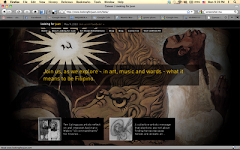Click here to download a pdf file.
Click here to read on the web.
One way to read this rather lengthy academic paper is to think about it in these terms: Many say that the problem with Filipinos is that we are politically immature. Witness how we vote for personalities, they would say, rather than for programs or political parties as a whole.
But are we entirely to blame? If one were to look closely at the political institutions and how elections are conducted, one would find that the system itself encourages, if not forces us to choose on the basis of personality.
Consider, for example, how we vote for the President and the Vice President. No less than the Constitution requires that we choose them separately, rather than as a team. Simply put, it tells us to choose personalities, rather than a common vision or program that could (presumably) be continued by the VP in case the President dies or becomes incapacitated.
Or how we elect our Senators - We choose 12 at a time. We don't know about you, but how many can actually remember or even select 12 that they would vote for? Given this procedure, name recall becomes a big advantage. Again, here is an institutionalized mechanism that encourages personality-based elections.
Ah, and what about our honorable representatives from the Lower House? Here, it's a bit trickier. We elect them singly, by district. The unintended effect: given our feudal history, political families and warlords have an easier time consolidating power within a relatively small geographical area. In this case, the elections again, could turn on the candidate's name, i.e., his or her family name.
We're not saying it's not possible for an unknown to win, but obviously, the cards are constitutionally stacked heavily against him or her.
Possible tweaks to discourage personality-based politics: Allow for block voting, select Senators by region rather than at large (to allow people to really study and know the candidates), and create larger congressional districts with multiple congressmen (to dilute the power of powerful families - they would likely still win, but now they would be one among a number of other candidates).
Of course, all these could also have unintended consequences, so they need to be studied carefully. But that's not our point.
The point is that institutions matter not only because they could help reduce (or increase) corruption, inefficiency, traffic, birth and death rates, GNP, GDP, overseas migration, blah, blah...
At an even more basic level, institutions matter because they affect who we are, how we see our leaders, who we choose to follow (and blame), and how we see and will define our individual and collective futures.
If we want to truly understand who we are as a people, learning how institutions (including the Church) work for or against us would be a great starting point.
 Bayang Magiliw (2007) by Manny Garibay.
Bayang Magiliw (2007) by Manny Garibay.Oil on Canvas. 78"x96"





No comments:
Post a Comment